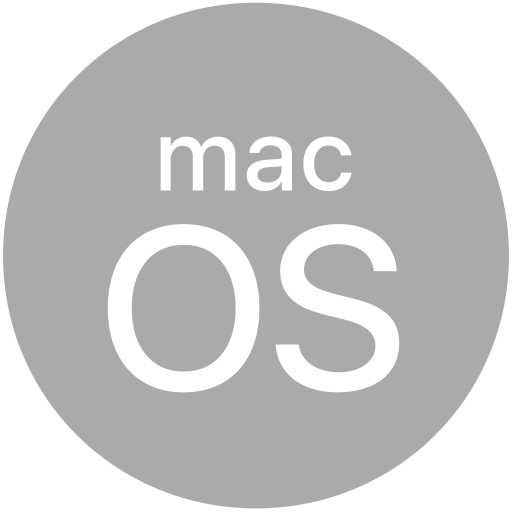# Titanium.Codec
A module for translating between primitive types and raw byte streams.
# Overview
The Codec module can be used for encoding strings and numbers into Titanium.Buffer
objects, and decoding primitive types from buffers.
# Byte Order
Multi-byte data can be stored in two different byte orders: big-endian or little-endian. In big-endian byte order, the most significant or highest-value byte is stored first. For example, the 4-byte integer 0xFEDCBA98 is made up of the bytes 0xFE, 0xDC, 0xBA and 0x98, from most-significant to least-significant.
If we represent a buffer as an array of byte values, a big-endian encoding of 0xFEDCBA98 would look like this:
[ 0xFE, 0xDC, 0xBA, 0x98 ]
In little-endian order, the bytes would be stored in this order:
[ 0x98, 0xBA, 0xDC, 0xFE ]
For 8-bit character encodings, including ASCII, Latin-1 and UTF-8, byte order is not significant: the text is a sequence of individual bytes.
For UTF-16, text is represented as a sequence of 16-bit values. For example, a capital T in UTF-16 is 0x0054, and lowercase i is 0x0069. If we encode the string "Ti" with UTF-16 in big-endian byte order, we get:
[ 0x00, 0x54, 0x00, 0x69 ]
In UTF-16 with little-endian byte order, "Ti" is encoded as:
[ 0x54, 0x00, 0x69, 0x00 ]
Note that the bytes for each character are stored least-significant byte first, but the order of the characters is unchanged.
# Methods
# decodeNumber
Decodes a number from the source buffer using the specified data type.
Takes a set of named parameters in the options argument.
Bytes are read from the source buffer and decoded as the specified data type, type.
Two optional parameters can also be specified in options:
-
If
positionis included in theoptionsdictionary, reads data from the buffer starting atposition. -
If
byteOrderis included in theoptionsdictionary, the specified byte order is used -- otherwise, the native byte order is assumed.
Throws an exception if source is null, or position is greater than source.length
Parameters
| Name | Type | Description |
|---|---|---|
options | DecodeNumberDict | Named parameters. |
Returns
Number decoded from source.
- Type
- Number
# decodeString
Decodes the source buffer into a String using the supplied character set.
Takes a set of named parameters in the options argument.
Bytes are read from the source buffer and decoded as a string.
Several optional parameters can also be specified in options:
-
If
positionis specified, bytes are read fromsourcestarting atposition. -
If
lengthis specified, no more thanlengthbytes are read. -
If
charsetis specified, it determines the character encoding used to decode the string. Otherwise, UTF-8 is assumed.
Throws an exception if charset is not a valid character set, source is null,
or either position, length, or position+length is greater than source.length.
Parameters
| Name | Type | Description |
|---|---|---|
options | DecodeStringDict | Named parameters. |
Returns
The decoded string
- Type
- String
# encodeNumber
Encodes a number and writes it to a buffer.
Takes a set of named parameters passed in the options argument.
Encodes the number source into dest using the passed in data type.
Two optional parameters can also be specified in options:
-
If
positionis included in theoptionsdictionary, writes the encoded number to the buffer starting atposition. -
If
byteOrderis included in theoptionsdictionary, the specified byte order is used -- otherwise, the native byte order is assumed.
Parameters
| Name | Type | Description |
|---|---|---|
options | EncodeNumberDict | Named parameters. |
Returns
Position after the encoded number in dest.
- Type
- Number
# encodeString
Encodes a string into a series of bytes in a buffer using the specified character set.
Takes a set of named parameters in the options argument.
The string is read from source and written to the buffer dest.
Several optional parameters can also be specified in options:
-
If
charsetis included, the string is encoded using the specified character encoding. -
If
destPositionis included, data is written into the buffer starting at the specified position. -
If
sourcePositionis included, a substring of the source string starting at the specified position is encoded. -
If
sourceLengthis included, at most the specified numer of characters are encoded.
Throws an exception if charset is not a valid character set,
source is null, or either sourcePosition, sourceLength, or
sourcePosition+sourceLength is greater than source.length.
Parameters
| Name | Type | Description |
|---|---|---|
options | Dictionary<EncodeStringDict> | Named parameters. |
Returns
An index indicating the first byte in the destination buffer after the encoded string.
- Type
- Number
# getNativeByteOrder
Get the OS native byte order (either BIG_ENDIAN or LITTLE_ENDIAN).
See "Byte Order" in the main discussion of Titanium.Codec for more information.
Returns
OS native byte order.
- Type
- Number
# Constants
# BIG_ENDIAN
Big endian (network) byte order -- that is, the most significant byte first.
See "Byte Order" in the main discussion of Titanium.Codec for more information.
# CHARSET_ISO_LATIN_1
ISO 8859-1 (Latin-1) character encoding.
See also: ISO/IEC 8859-1 on Wikipedia.
# CHARSET_UTF16
UTF-16 character encoding with default byte order.
See also: UTF-16/UCS2 on Wikipedia.
# CHARSET_UTF16BE
UTF-16 character encoding with big endian byte order.
See also: UTF-16/UCS2 on Wikipedia.
# CHARSET_UTF16LE
UTF-16 character encoding with little endian byte order.
See also: UTF-16/UCS2 on Wikipedia.
# LITTLE_ENDIAN
Little endian byte order -- that is, the least significant byte first.
See "Byte Order" in the main discussion of Titanium.Codec for more information.
